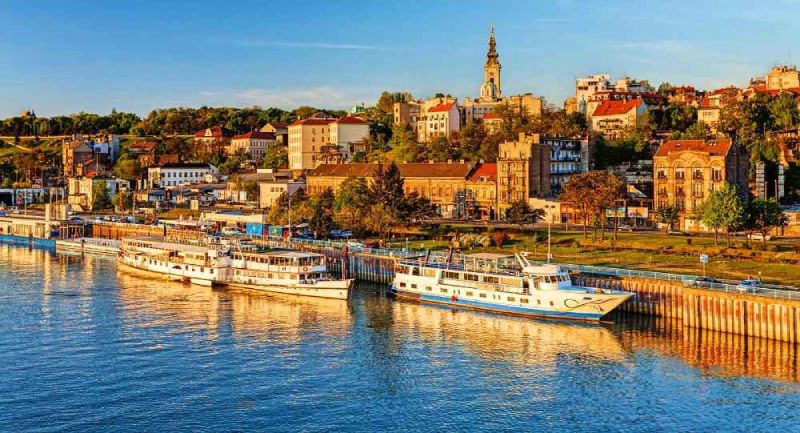News
Serbia will offer visas to Indian and Guinea-Bissau residents from the new year on January 1, 2023

Serbia has implemented a visa regime for Indian and Guinea-Bissauan citizens in an effort to conform to EU visa policy. As a result, Indian and Guinea-Bissauan citizens will no longer be able to visit Serbia without applying for a visa.
Indian nationals who intend to enter Serbia after January 1, 2023, should first apply for a visa at the Embassy of Serbia in New Delhi or in their country of residence.
The measure has been made in an effort to bring its visa policies into line with those of the EU and stop illegal migration, which in recent years has been quite common. Indian nationals traveling to Serbia must apply for a visa on January 1, 2023, as Serbia has ended its visa-free entry policy for Indian passport holders.
Before these changes, Indian travelers with valid passports or other travel documents could enter Serbia for up to 30 days a year without having to apply for a visa.
“Also, it may be noted that holders of Indian passports having a valid Schengen, UK visa, or visa of the United States of America, or residence permit of these countries may enter visa-free to the Republic of Serbia up to 90 days during a six-month period, and within the validity of said visas or residence permits,” the statement by the Embassy noted.
Serbia ended its visa-free relationship with Burundi and Tunisia under the same pretext of reducing illegal migration, as did India and Guinea Bissau.
Serbia has seen an increase in the number of refugees from various nations, particularly Cubans, from 36 to 339. However, Serbia and the European Union were alarmed by the increase in Turk arrivals, which jumped from 1,653 to 6,186.
In addition, arrivals from India increased dramatically during this time, rising from 557 to 4,469, indicating that the authorities needed to take action to stop the country from becoming a gateway for migration.
Turkey, India, Tunisia, Cuba, and Burundi made up 2.5% of all illegal border crossings on the Western Balkan Route in 2021, which saw a 20% increase this year.
At the moment, Armenia, Azerbaijan, Bahrain, Bolivia, China, Cuba, Indonesia, Jamaica, Kyrgyzstan, Kuwait, Kazakhstan, Oman, Mongolia, Qatar, Suriname, and Türkiye are among the countries with which Serbia has a visa waiver agreement. In addition, citizens of Belarus and Russia do not need a visa to visit Serbia for up to 30 days.
The Western Balkan route, which has been the most affected in the past three months, was the location of 61% of the 36,500 border crossings reported in October 2021, or 22,300 detections, according to Frontex, the European Border, and Coast Guard Agency. According to Frontex, Iraq, Burundi, and Afghanistan accounted for the majority of arrivals.
Additionally, since the peak of the migration crisis in 2015, the Western Balkan route has seen the highest number of illegal border crossings.
-

 Business3 weeks ago
Business3 weeks agoPrakash and Kamal Hinduja: Driving Social and Environmental Change
-
Education4 weeks ago
Fred DuVal: University Leadership as a Critical Resource for Climate Change Research and Life-Saving Solutions
-

 Cryptocurrency4 weeks ago
Cryptocurrency4 weeks agoDesigned For The Masses: How Akasha (AK1111) Is Unlocking Crypto For The Next Billion Users
-

 Health3 weeks ago
Health3 weeks agoThe Hinduja Brothers Commitment to Global Health: Empowering Communities Across Borders
-

 Cryptocurrency4 weeks ago
Cryptocurrency4 weeks agoNexaglobal & Future World Token (FWT): Could This Be the Next Big Crypto Investment of 2025?
-

 Startup15 hours ago
Startup15 hours agoSmall Business Month Encourages Entrepreneurs to Take Stock and Scale Up with Actionable Marketing Strategies
-

 Startup2 weeks ago
Startup2 weeks agoCost-Saving Strategies Every Small Business Owner Should Know to Boost Efficiency
-

 Startup3 weeks ago
Startup3 weeks agoMatthew Denegre on the Art of Deal Sourcing: Finding the Right Investment Opportunities























